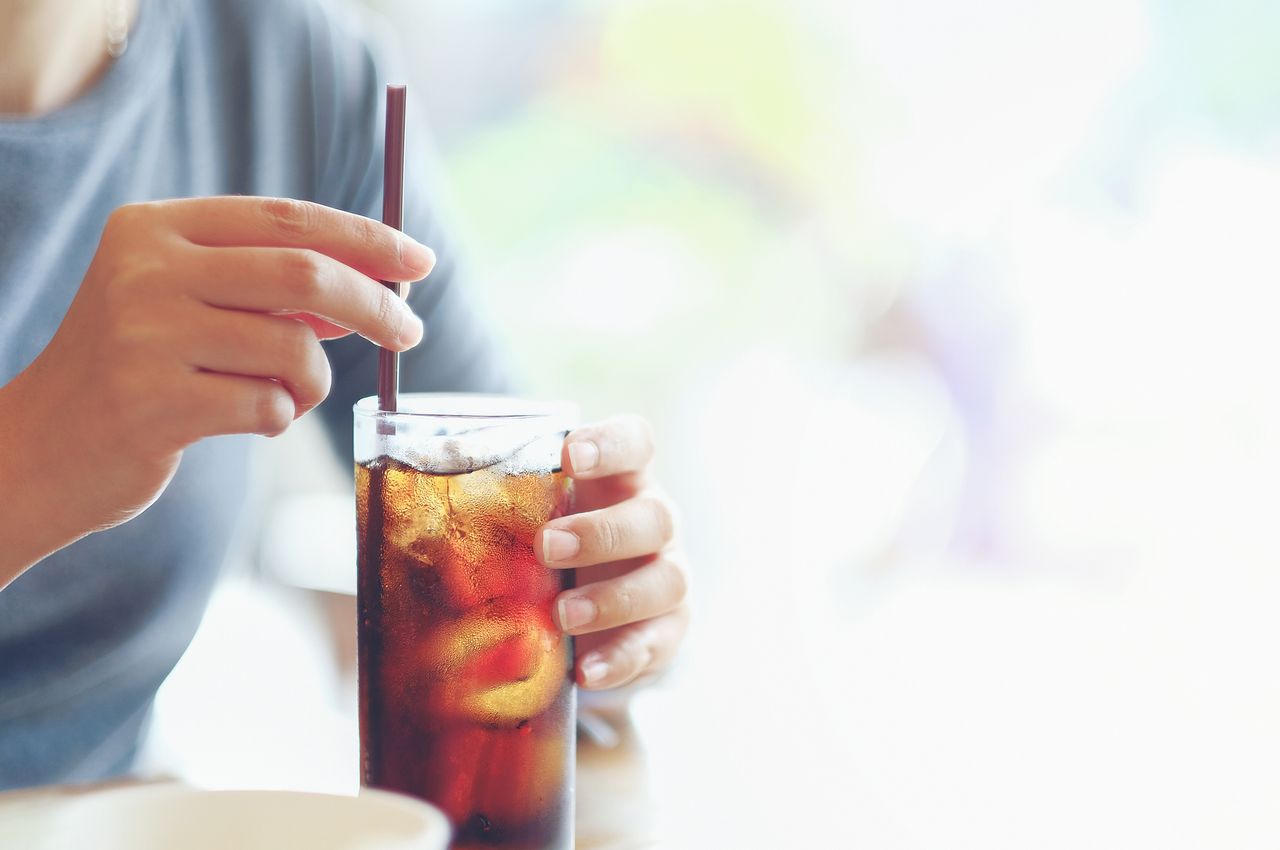Are fizzy drinks really bad for the over 40s? The experts have their say

With spring fast approaching many of us will be heading out into the garden to watch the sun go down with a tipple in hand. But if you’re a fan of a classic spirit-mixer combo, a recent news warning of the dangers of fizzy drinks for over 40s could have left you wondering whether supping on glass of gin and lemonade actually presented a serious risk to your health.
So are fizzy drinks bad for you? We separate fact from fiction, with the help of science and experts…
Does research support the notion that fizzy drinks are bad for you?
A recent study conducted by Tufts University in Massachusetts tracked more than 6,000 over 40s, looking at links between diet and blood fat levels, with examinations – including blood samples and weight – carried out every four years for a total period of 12 years.
They found that those who drank sugary beverages (such as ‘soda, lemonade or fruit punch’) daily were 53 per cent more likely to have higher amounts of triglycerides, when compared to those who rarely drank them. Triglycerides are a type of fat found in your blood, which if found in large amounts has been linked to an increased risk of heart disease. This aforementioned group had a 98 per cent higher change have low levels of high-density lipoprotein (HDL) – often referred to as ‘good cholesterol’, because it moves other forms of cholesterol to your liver, which then removes it from our bodies.
The researchers concluded by stating that, “These findings are consistent with current recommendations to limit SSB [sugar-sweetened beverage] consumption.”
The study’s lead author Professor Nicola McKeown, a nutritionist at Tufts University, said, "The results suggest high intake of drinks with added sugar, such as soda, lemonade or fruit punch, may influence risk for dyslipidemia [an abnormal amount of lipids (e.g. triglycerides, cholesterol and/or fat phospholipids)] as we age.
“One dietary strategy to help maintain healthier blood cholesterol and triglyceride levels may be to avoid drinks with added sugars."
Sign up for the woman&home newsletter
Sign up to our free daily email for the latest royal and entertainment news, interesting opinion, expert advice on styling and beauty trends, and no-nonsense guides to the health and wellness questions you want answered.
Continuing she added, “Our findings show what we put in our glass may contribute to greater risk of cardiovascular disease via worsening of lipid levels.
“Managing blood cholesterol and triglyceride levels is an important goal and a promising strategy for preventing heart attack and stroke.”
Researchers also looked at 100 per cent fruit juice and diet drinks and found no associations between dyslipidemia or negative changes to cholesterol. However, they did advise moderation in both cases.
“We are better off quenching our thirst with water. The emerging research on long-term consumption of diet soda on health is inconclusive, so it is prudent to say diet drinks should only be an occasional indulgence,” continued McKeown. “As for 100% fruit juice, best to limit consumption and consume whole fruits when possible, as recommended by the 2015-2020 Dietary Guidelines for Americans.”
Can we take this research at face value?
An analysis of the research on the NHS’ website highlighted some of its potential drawbacks, including the below:
- Study participants reported on their own diets using questionnaires, so their responses may not have been completely accurate
- While researchers tried to account for other factors that may have had an impact on blood fat results, apart from diet, they may not have been able to cover all potential variables
- As the study was observational it’s difficult to say for certain if there was a causal link between sugar-sweetened drinks and variations in blood fat levels
What do other experts say?
We asked the experts to have their say, and here’s their response:
Victoria Taylor, Senior Dietitian at the British Heart Foundation, said:
“As the weather heats up, it might be tempting to reach for a refreshing sugary drink. But dietary surveys in the UK show that we’re already eating too much sugar, and sugary drinks are one of the biggest offenders. Although we might think as fruit juices and smoothies as healthier alternatives, they actually contain the sugar from several fruit in one glass, which is more than you would eat.
“High sugar diets are a problem because they are also often high calorie. This means we’re more likely to gain weight, increasing the risk of heart and circulatory diseases as well as type 2 diabetes.
“Guidelines recommended that six to eight cups or glasses of fluid is about right for most of us. You can’t go wrong with a hydrating glass of water, while other low sugar or sugar free drinks include tea and coffee or low fat milk are also options.”
Echoing her sentiments, Sarah Coe Nutrition Scientist at the British Nutrition Foundation said:
“The new study suggests that there may be an association between regularly drinking sugar-sweetened drinks and negative changes in the levels of cholesterol and fats in the blood, which can increase the risk of heart disease.
“But as the study was observational in nature and followed a population over time, the findings cannot prove that the sugar-sweetened drinks directly caused the changes in blood fat levels seen as it may be that other factors were involved.
“Sugar-sweetened drinks are one of the top contributors to added sugar in our diets. We know that consuming excess calories from foods and drinks high in sugar is associated with an increased risk of obesity. Being obese can raise the risk of other health conditions such as type 2 diabetes and high cholesterol that can lead to heart disease and stroke.”
She went on to advise, “The best way to stay hydrated healthily is to drink water wherever possible, which delivers fluid without calories or sugars. But there are a wide range of drinks to choose from that will also count towards your 6-8 glasses of fluid a day, including tea and coffee, lower fat milks, fruit and vegetable juices and smoothies (max. 150ml a day) and sugar-free drinks.”
Are fizzy drinks bad for you: what's the conclusion?
It seems then that sugar is the key culprit here, not just fizzy drinks, and this applies no matter your age. The NHS recommends that sugar shouldn’t take up more than 5 per cent of energy intake. That’s around 30g (roughly 7.5 teaspoons) for anyone aged 11 and over. It’s also important to look out for the ‘carbohydrates (of which sugars)’ figure. Ideally it shouldn’t be higher than 22.5g of total sugars per 100g, and the lower end of the range is 5g of sugar or less per 100g. Anything in between is medium.
Miriam worked for woman&home for over five years and previously worked on the women's lifestyle magazines Woman and Woman's Own.
-
 Household items you should clean more regularly
Household items you should clean more regularlyThink you're cleaning enough? Think again! Everyday items harbour hidden bacteria, some worse than a toilet seat, here’s what you’re missing…
By Natalie Denton Published
-
 Welcome Italy into your home with the Amalfi decor trend – think lemons, ceramic patterns and bold colours
Welcome Italy into your home with the Amalfi decor trend – think lemons, ceramic patterns and bold coloursDreaming of an Italian-style summer? The new Amalfi interiors trend will provide all the dreamy Mediterranean vibes you need
By Emily Smith Published